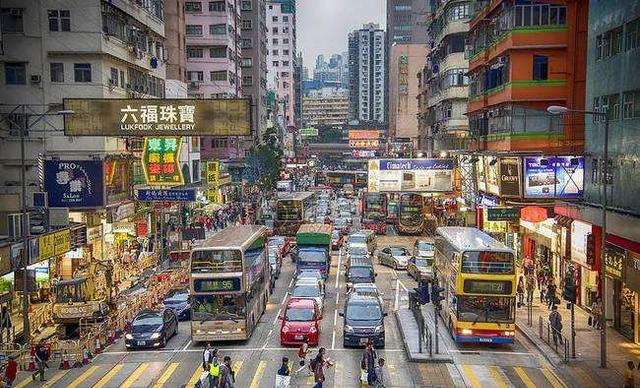For most people, mentioning longevity is more likely to think of Japan, in fact, in recent years, the average life expectancy of the population in Hong Kong has surpassed That of Japan, from 2013 to 2020, it has remained the world's first for eight consecutive years. Recently, the joint scientific research of the University of Hong Kong and the Australian National University revealed the secret of longevity of Hong Kong residents, which was included in the sub-journal of the top journal "Lancet".
According to the "2020 Human Development Report" released by the United Nations Development Programme, the life expectancy of men in Hong Kong is 81.75 years, that of women is 87.53 years, and the average life expectancy of the mainland is 84.9 years, while the average life expectancy of the mainland is 77.47 years, which means that mainland residents live nearly 8 years less than the average hong Kong resident. Japan, which is known for its longevity, has an average life expectancy of 85.6 years in 2020, with a difference of 0.3, and it is still not the second oldest.
One. The University of Hong Kong and the University of Australia have joined forces to uncover the mystery of longevity in Hong Kong
In order to unveil the mystery of Longevity in Hong Kong, Li Ka-shing, as the richest man in Hong Kong, has taken the lead, and his research team from the School of Medicine of the University of Hong Kong and the Australian National University have joined forces to conduct scientific research, which is also the largest and most comprehensive longevity study in Hong Kong to date, and has conducted a comprehensive analysis of hong Kong from the aspects of gender, age and disease.

Researchers have found that tobacco control is a key factor in Hong Kong's longevity, and its tobacco control is more stringent than imagined.
As early as 1990, Hong Kong became one of the regions with the lowest overall smoking rates in the world. This is due to the importance that Hong Kong attaches to tobacco control, from tax collection, law, health education popularization, and the establishment of non-smoking zones in public places. Indoor smoking is prohibited in Hong Kong, and the term "indoor" has a clear and strict definition, stipulating that places with a total enclosure of 50% of the total area of each side or have ceilings or covers are called "indoors", that is, even smoking in street greenhouses is against the law. According to the Lancet, there are many reasons for the survival advantage of women and men in Hong Kong, China, and the deaths related to smoking control reach 34.8% and 50.5% respectively.
According to the "World Health Organization 2019 Global Tobacco Epidemic Report" data, quitting smoking at different ages can achieve a degree of life extension effect, quitting smoking at 30 years old is expected to increase life expectancy by 10 years, and quitting at 50 years old, it can only increase life expectancy by about 6 years, if you quit smoking at age 60, the effect is greatly reduced, and you can only increase your life expectancy by 3 years.
At the same time, the sharp reduction in cancer, cardiovascular disease, and traffic accident-related deaths is also an important reason for Hong Kong's longevity, and the mortality rate is also the lowest compared with other developed countries. Efficient and low-cost public health care has also led to a significant reduction in poverty-related diseases.
Two. Attaching importance to health and longevity is engraved in the bones of Hong Kong residents
Attaching importance to longevity seems to be engraved in the bones of Hong Kong people. As a Hong Konger, Li Ka-shing not only takes his own anti-aging molecules (Amuyin's similar supplements) but also focuses on investing in life extension technology, donating $10 million to the University of California, Berkeley, and his crisper gene scissors can help develop new cancer treatments. Even the HKU team that conducted the Hong Kong longevity survey is Li Ka-shing's research team at the Faculty of Medicine at the University of Hong Kong.
In addition, Li Ka-shing also invested 200 million yuan in the research and development of anti-aging molecules, which is also his most famous scientific research investment. The University of Tokyo in Japan has confirmed through human experiments that such anti-aging molecules have greatly improved aging indicators, and the 65-year-old who participated in the trial "reverse growth". It is reported that Li Ka-shing not only personally took, but also endorsed for it, the same kind of finished product "Amuyin" currently has 4 physical stores, of which 3 are settled in the most prosperous areas in Hong Kong, and even need to queue up to enter during the peak period of passenger flow, which shows the importance of Hong Kong residents to longevity technology. At present, life extension agents such as "Amuyin" have also entered the mainstream e-commerce platform. Hong Kong residents' emphasis on longevity technology may further widen the life gap in the future.
For ordinary residents in Hong Kong, focusing on health and longevity seems to have become a habit that runs through all aspects of life. The Hong Kong regional diet is known for its light, steaming is the most common way of cooking, and a light diet is more beneficial for longevity. At the same time, Hong Kong has a strong soup culture, which can directly help reduce the emergence of various diseases such as cancer and cardiovascular diseases. Previously, it was investigated that the average daily exercise time of Hong Kong residents was 45 minutes, and the improvement of the medical security system also made them pay more attention to physical examination.
Human longevity is the result of the joint action of many factors, and the longevity of a region is a joint effort from social management and residents, social wealth, and scientific and technological development.